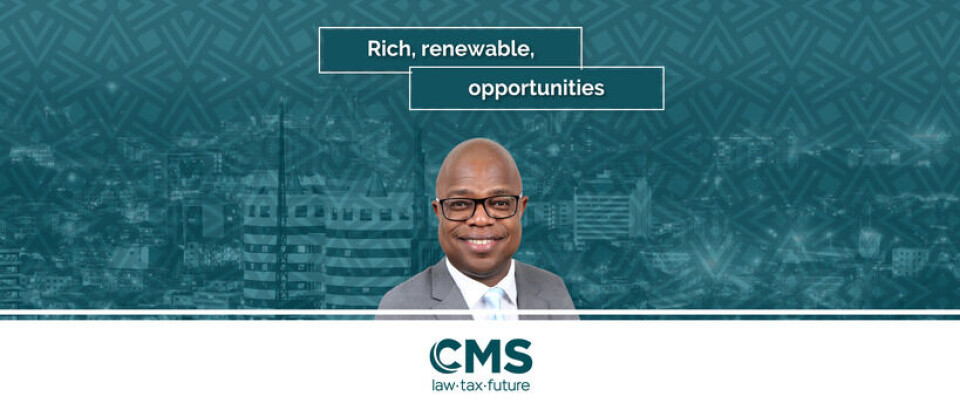Copyright : Re-publication of this article is authorised only in the following circumstances; the writer and Africa Legal are both recognised as the author and the website address www.africa-legal.com and original article link are back linked. Re-publication without both must be preauthorised by contacting editor@africa-legal.com
Rich, renewable, opportunities

East Africa’s energy sector has numerous opportunities and some challenges, says leading banking and finance lawyer Julius Wako who discussed the issue with Craig Sisterson.
While East African nations face challenges such as regulatory lag and a need to build more lending capacity, there are massive opportunities now and in the future across the renewable energy landscape, says banking and finance expert Julius Wako.
“Africa is rich in renewable energy resources,” commented Wako, a partner at CMS Daly Inamdar Advocates in Nairobi. Kenya. “Whether you’re talking about wind, hydro, solar or geothermal, the continent ticks all the boxes in terms of opportunity. Then of course there’s the whole global conversation around all things climate change and the common goal to reduce CO2 emissions and the Net Zero effect.”
While Kenya has reformed its energy legislation and related regulations multiple times over the past 20 years, Wako says those frameworks continue to be constantly evolving to keep up with advances in technology and best practices. “There is a lag between what is the best practice standard, what we aspire to, and what needs doing immediately as we evolve,” he said “Sometimes we get into licensing or regulatory grey areas, and that delays getting projects online.”
To enhance and streamline regulatory frameworks for the benefit of everyone, Wako says East African governments can and should look to the south and the west to “exchange notes” and unlock the experiences and best practices of countries like South Africa and Nigeria because they’ve had more large-scale renewable energy projects that are further ahead.
Historically, lending capacity has been an issue in East Africa, with local institutions, local banks and local expertise for assessing clean or renewable energy projects needing to be built up before such projects can be executed and implemented, Wako explained.
“But as we develop, people are trying to build that capacity, build financial products, and try to respond as much as possible to the initiative to roll the projects out. So while lending capacity and expertise has been an issue, there’s so much effort in trying to fill those gaps.”
Wako says there’s plenty of scope for public–private partnerships (PPPs) to be used for renewables projects in East Africa, a legal framework that’s been underutilised so far for a variety of reasons. The use of “green guarantees” is also growing, with various bodies such as the African Guarantee Fund catalysing bank lending to enterprises who are also supported by development partners and foreign investors to help renewable energy projects improve their profile and become more bankable.
Wako and his colleagues at CMS Legal, a global network of leading independent law firms, have helped several renewable energy project developers navigate the evolving regulatory space in East Africa. They go through all the steps from creating special purpose vehicles, working with energy ministries and securing a myriad of licences and contracts, to dealing with national government and local community considerations, closing finance and beginning production.
“We work with them every step of the way,” he said.
To join Africa Legal's mailing list please click here
